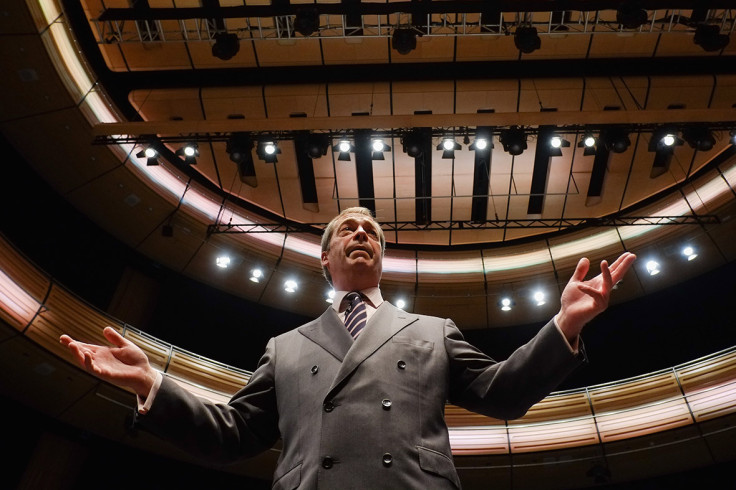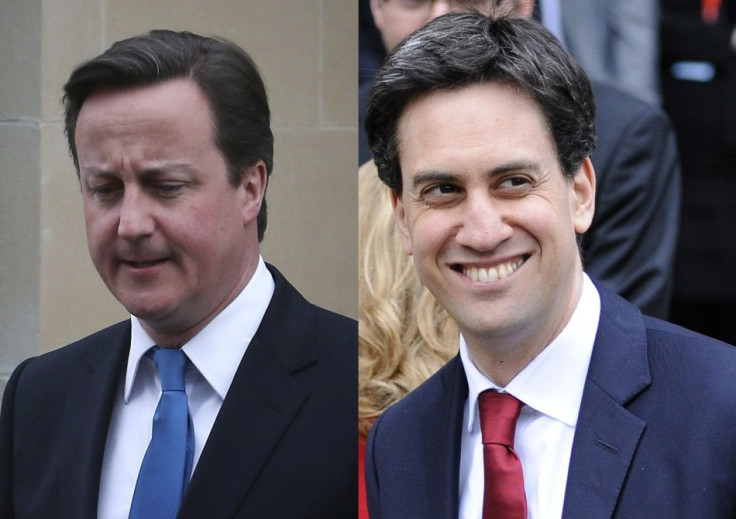Farage Friday: 'Inhuman' Party Leaders Reel at Ukip Surge in Local Election Polls

The script for the ground-shaking local and Euro elections was written long before even the first vote was cast.
Deeply disaffected and angry voters were going to back a powerful Ukip insurgency against the complacent, out-of-touch Westminster establishment.
And as the results of the local polls started rolling in, it was clear the script was being played out line-by-line and with significant consequences for the other parties, with possibly worse to come in the EU results on Sunday.
It was equally clear that, as the "big three" fumbled to get a grip on precisely what they did wrong, they had little or no idea how to combat Nigel Farage's "people's army" other than hoping, when it comes to choosing a government next year, voters will return to them.
Liberal Democrat Lynne Featherstone hit the nail squarely on the head when, in the early hours of "Farage Friday" she said Ukip managed to do what mainstream politicians had long stopped doing; looking human.
"Ukip have managed to sound like human beings, that's Nigel Farage's big win. All of us have become so guarded, we are so on-message that we seem to have lost some of our humanity."

And as the inevitable inquests started, with all three big party leaders facing a backlash from their own troops, it was that inability to connect with voters and reassure them they really do live in the same world rather than a rarefied Westminster bubble that was presenting the greatest challenge.
Farage had every reason to claim he was the "fox in the Westminster hen house" and that Ukip must now be viewed as serious players in a four-party system and could no longer just be dismissed as "fruitcakes, loonies and closet racists".
Meanwhile, the other party leaders were facing exactly the internal criticisms and pressures they were always likely to face, and from the predictable sources.
David Cameron's Eurosceptics, led by Jacob Rees-Mogg, used the party's losses to demand electoral deals with Ukip to maximise the "small c conservative vote". They are also certain to call for a tougher anti-Brussels stance in future dealings with the EU.
Labour may have advanced but it also discovered it could be seriously damaged by the Farage factor, even in its northern heartlands, and Ed Miliband's usual internal critics immediately turned on him, with demands for him to offer an in-out EU referendum and a change of style.
Constant critic, Graham Stringer accused him of running an unprofessional campaign, ignoring Ukip and failing to offer voters a radical alternative while a senior MP allegedly branded him "weird".
Nick Clegg plunged to yet further humiliation as protest voters turned their backs on the much-derided Liberal Democrats in favour of a party whose platform they knew little about beyond its hard-line approach to EU withdrawal and immigration controls.
His reaction was that, in areas the Lib Dems were already strong, they had still done well.
So, while Nigel Farage was clearly the big winner, the three big parties were all losers and wrangling over who was the biggest loser will do nothing to address the core problem or persuade voters they are being listened to.
As the parties all promised to listen to the voters, and offer engaging, radical policies to win defectors back to them, there was precious little in terms of detail.
That is probably understandable as the only policies Ukip really pushed during the campaign were withdrawal from the EU and curbing immigration, neither of which any of the other parties can beat them on.
Cameron has done his best by promising an in-out referendum, something Miliband is determined to resist doing, and both have accepted the need to tackle immigration. But on both these issues it is impossible to out-Farage Farage.
What they will be counting on is that, as the general election approaches, other policies on the economy, the health service, education and welfare will move back to their usual place at the top of voters' concerns and Ukip will be found wanting.
But that still leaves the intangible "being human" factor, which Farage does to great effect and which "weird" Ed Miliband and "posh boy" David Cameron struggle with.
© Copyright IBTimes 2025. All rights reserved.






















